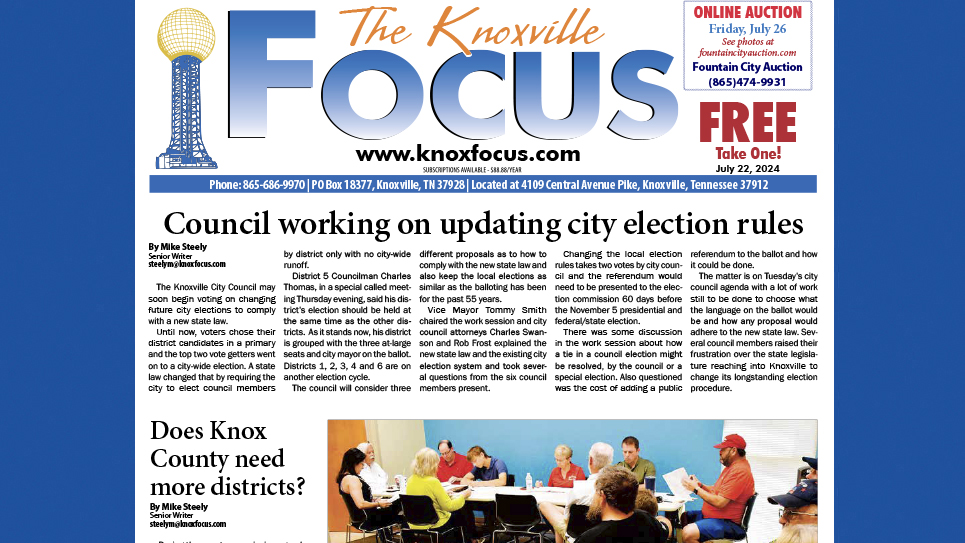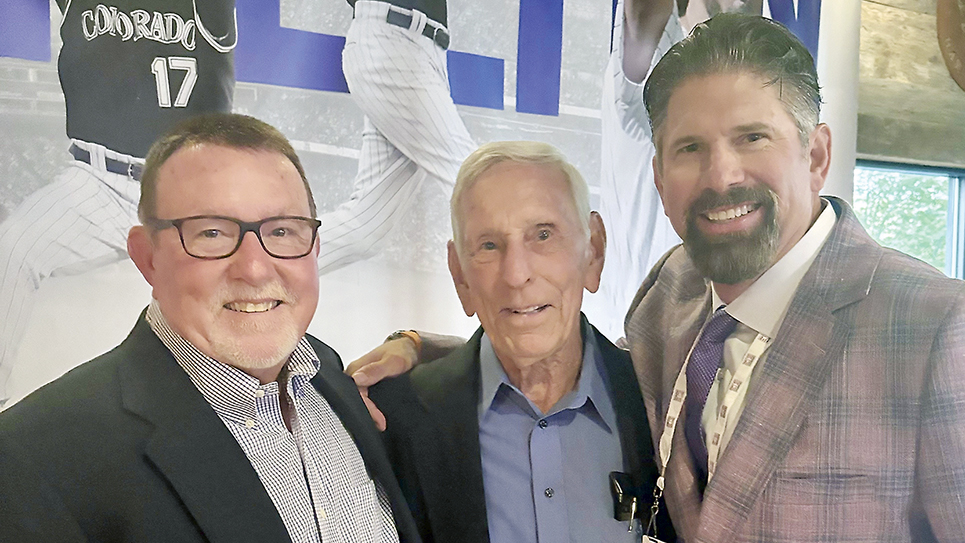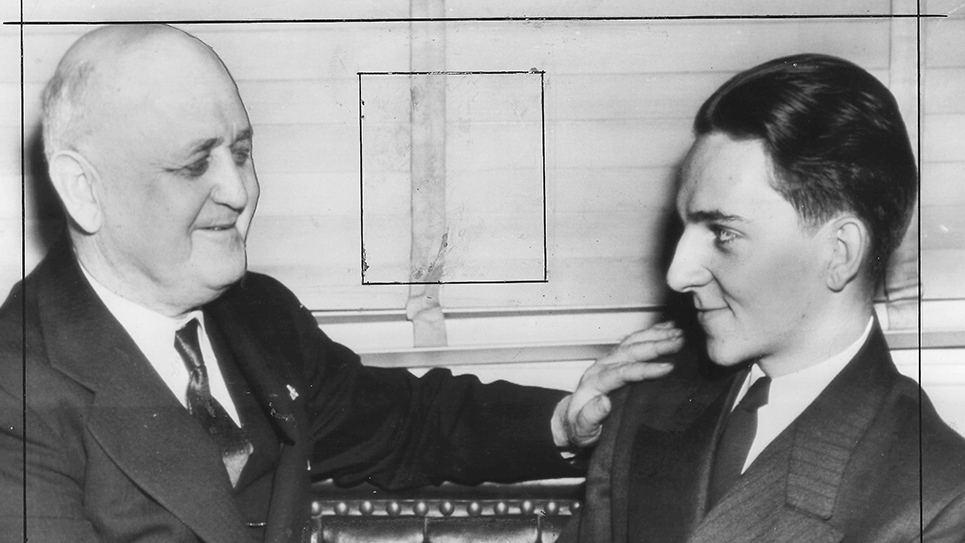Local historians honored by East Tennessee History Center
By Bill Howard
Two local historians – Robert J. Booker and Jack Neely – have been chronicling the history of Knoxville and Knox Co. for decades. On Tuesday, June 1, the 225th anniversary of Tennessee’s statehood, they were officially recognized for it.
At a ceremony presided over by Knoxville Mayor Indya Kincannon and Knox County Mayor Glenn Jacobs, the East Tennessee History Center dedicated the Booker-Neely Microfilm Reading Room in honor of the two men.
“I’m usually not at a loss for words,” said Booker, when he was called to the podium by Kincannon. “I am today because I usually talk about the history of Knoxville and Knox County, but when it comes to talking about me, it’s a different story. What an honor to look around the room and see so many people I’ve worked with through the years in this very facility.”
“Today this is truly an honor,” Booker said. “Jack and I have been on many stages together all over Knox County talking about our history and honored that we can share this singular honor today.”
“It’s especially meaningful to me today. I have many, many plaques and a bridge named for me. And all of that stuff is because I was a good guy, because I was at the right place at the right time. But this is a single honor because it honors my work.”
In Booker’s personal life, he has more than “walked the walk” in terms of providing some of the material about which he has written. For decades he’s been a civil rights and community leader.
Graduating from Austin High School in 1953, he then served in the U.S. Army. Returning home he graduated from Knoxville College in 1962. At KC, he was a two-term president of the student body, and was active in civil rights, being an instrumental force in organizing Knoxville’s sit-in movement to fight segregation in downtown businesses.
In 1966, Booker became the first Black person to be elected to serve in the Tennessee House of Representatives. During the 1970s, he not only served as administrative assistant to Mayor Kyle Testerman, but was also on the Tennessee Civil Service Commission and the Knoxville City Council. For 11 years, he was the executive director of the Beck Cultural Exchange Center, a non-profit organization that preserves African American history and culture.
Booker’s titles include “Two Hundred Years of Black Culture in Knoxville, Tennessee, 1791 to 1991;” and “And Then There Was Light: The 120 Year History of Knoxville College.” Today Booker continues to write and do research. “I read all the time; I have ideas all the time,” he said. He also has a radio show on WJBE, Thursdays from 1 to 3, and Saturday from 10 to 12.
Journalist and historian Neely has written with equal prodigiousness about his hometown of Knoxville. After graduating from UTK with a degree in American history, Neely worked as a guide for the Egyptian exhibit at the 1982 World’s Fair. He also worked as a criminal-defense investigator and as an assistant editor at Whittle Communications.
When, in 1992, his column “Secret History” debuted in the alternative weekly magazine Metro Pulse, Neely’s stature as a Knoxville historian began to solidify. Almost three decades of writing and publishing later have cemented Neely’s reputation as the “Scruffy City’s” official historian.
“When I started the column I was just amazed at how much material there was out there and how much interest,” said Neely. “It was like waking a sleeping giant. “I’ve really begun talking about Knoxville as a way to teach all of American history. The city’s past is connected to almost everything you study in Western Civ.”
Growing up, Neely learned about various cities – Charleston, Chattanooga battlefields, others – by visiting them with his family. At some point it occurred to him he knew little about his hometown of Knoxville.
“I was puzzled, I didn’t know anything about Knoxville,” he said. “Why didn’t Knoxville talk about itself? When I was growing up it just seemed to be a city that didn’t know or care about itself. I thought ‘this city is as fascinating as any in America.’ It’s really complex and interesting and informs us a lot about modern times as well.”
In 2015, Neely’s column continued in the Knoxville Mercury as “The Scruffy Citizen,” at which time he became the founding executive director of the Knoxville History Project, a non-profit organization dedicated to researching and promoting the history of Knoxville through published community histories, educational programs, lectures, walking tours, and other special initiatives.
Neely’s titles include “Knoxville, Tennessee: This Obscure, Prismatic City;” “Historic Knoxville: the curious visitor’s guide to its stories and places;” and “Knoxville, Tennessee: green by nature.”
“I don’t know where I would be without this library,” said Neely. “I just always thought historically, even as a kid. I always wanted to tell the stories and figure out why things were the way they are. I always thought there was a good story beyond almost everything.”
Also presiding at the dedication were County Commission Chair Larsen Jay, and Tommy Smith, who represents District 1 on the city council.






